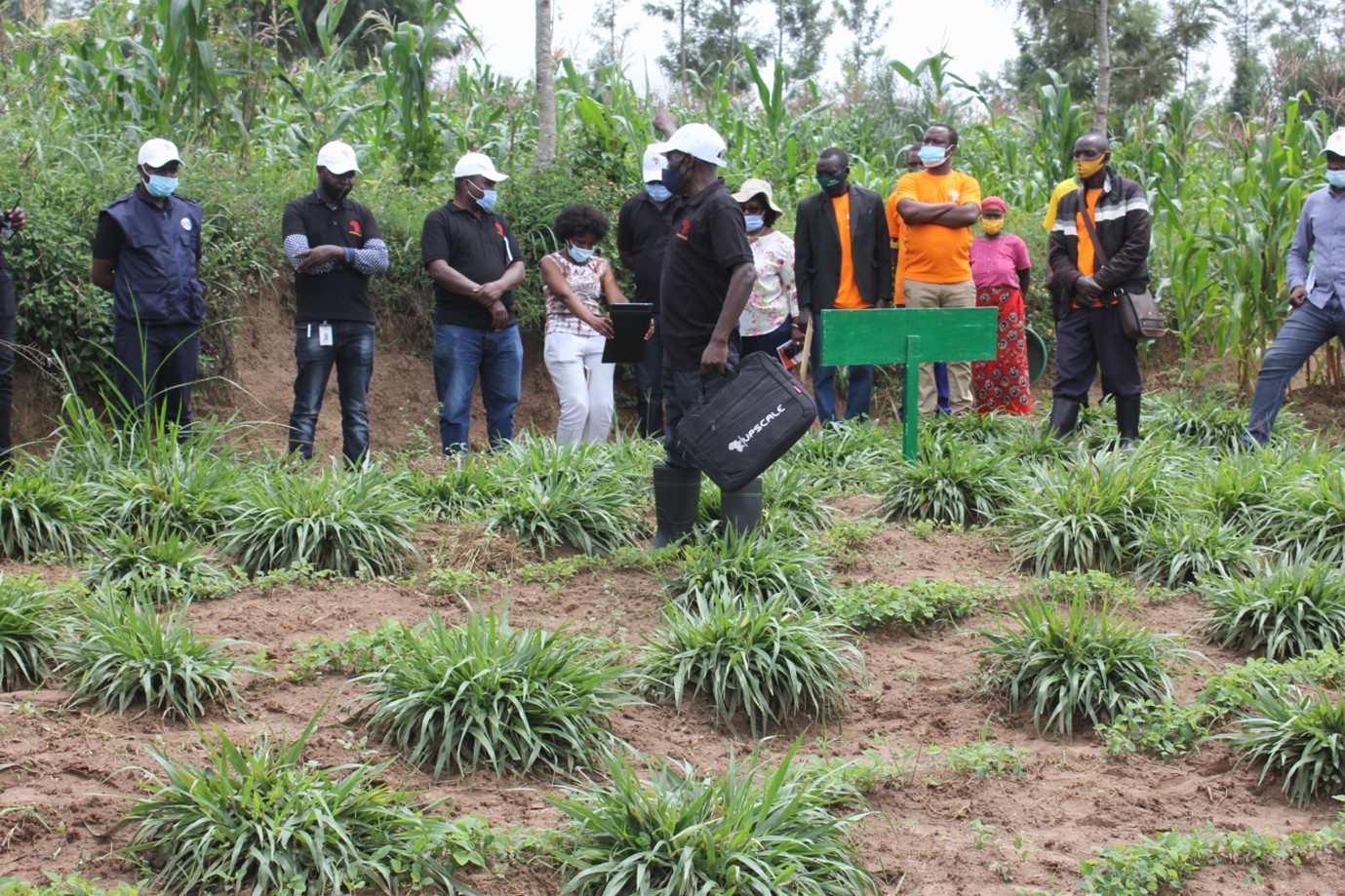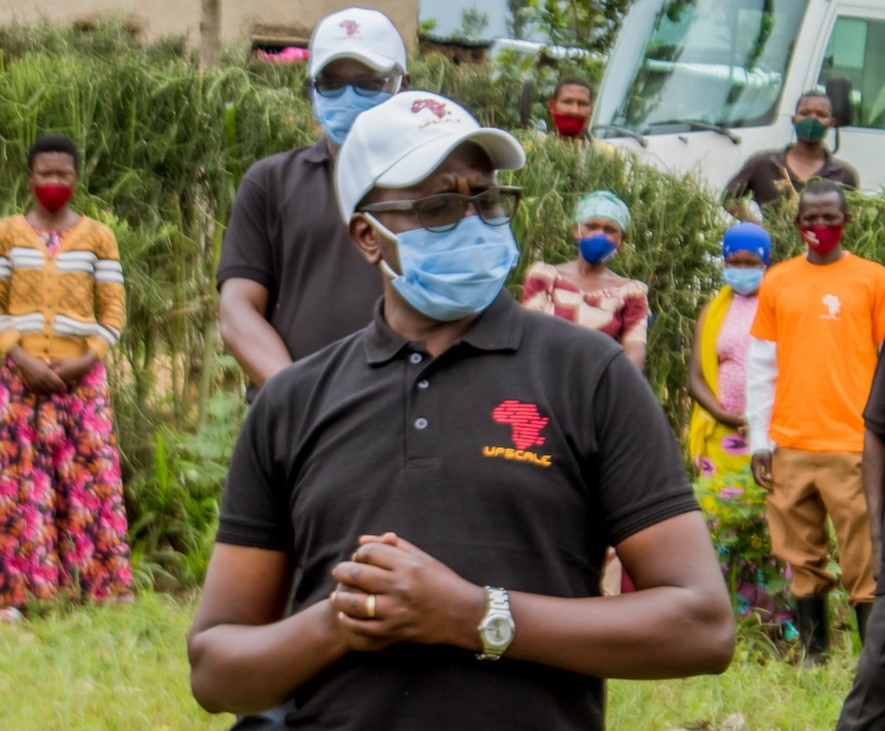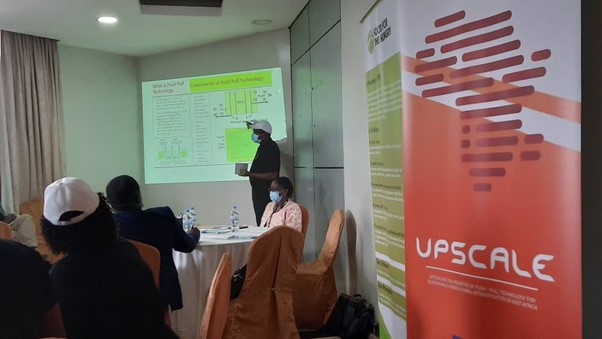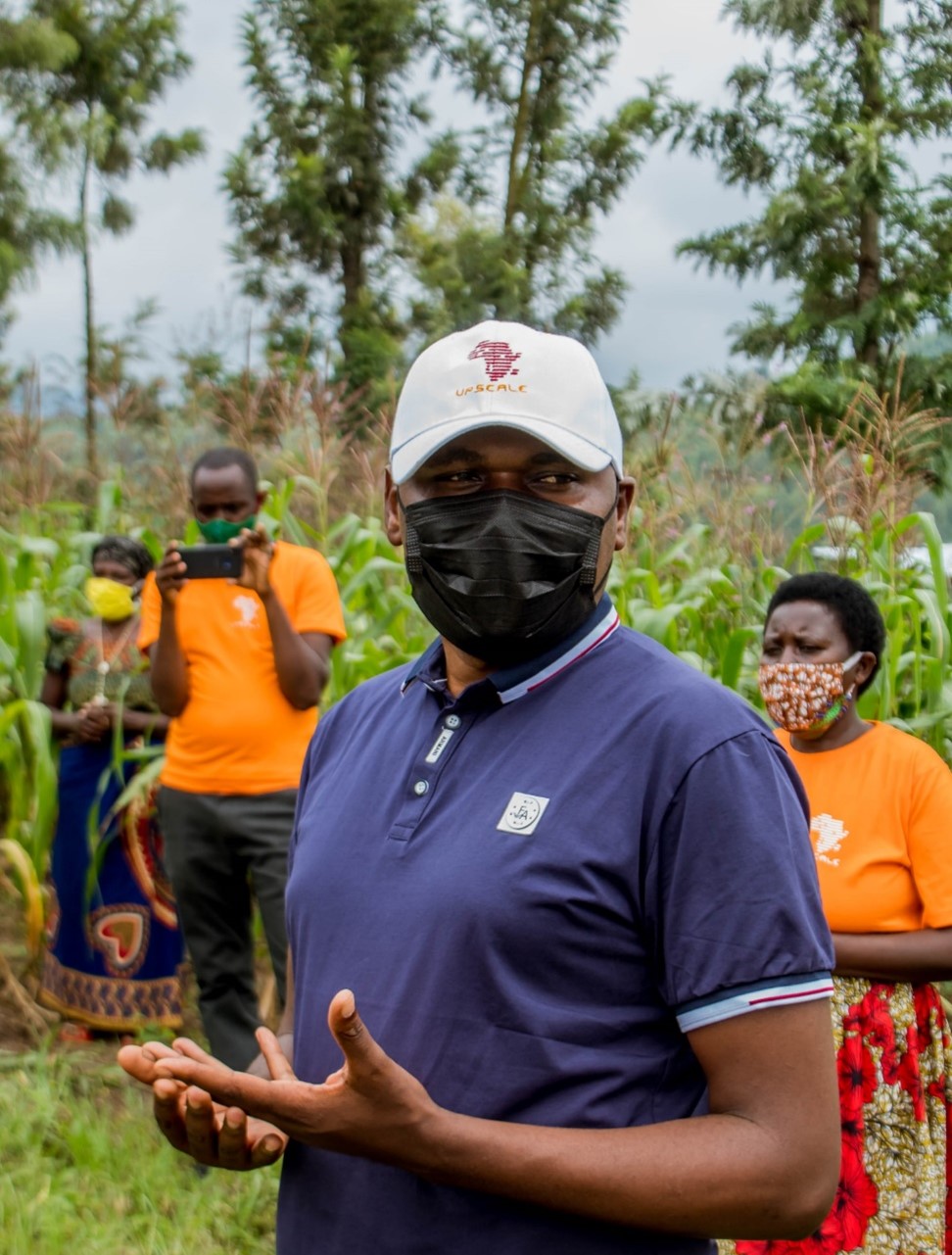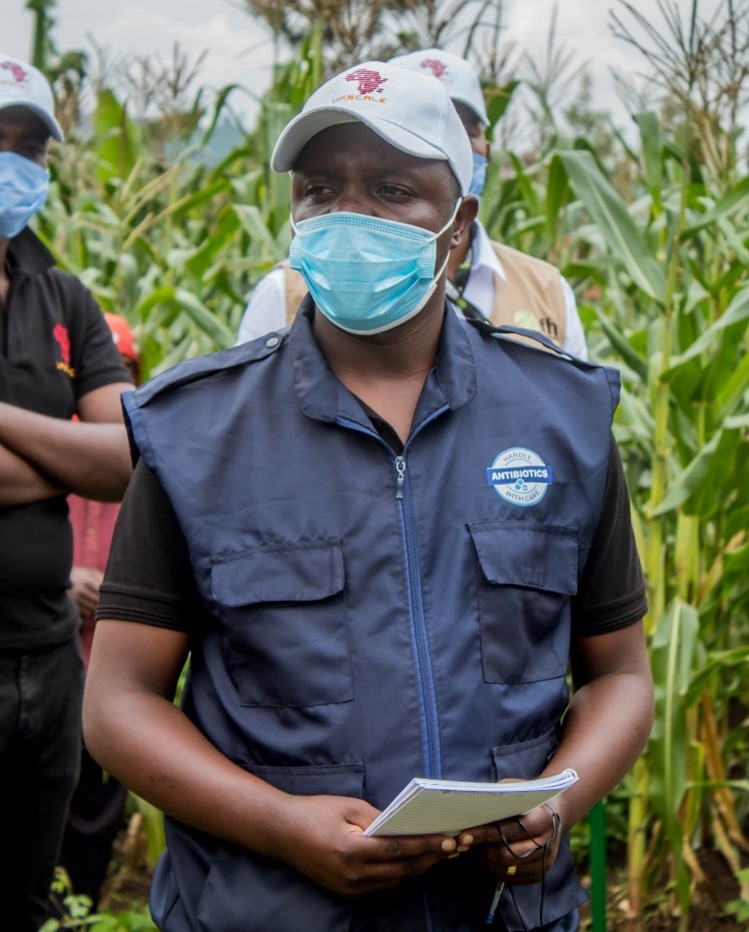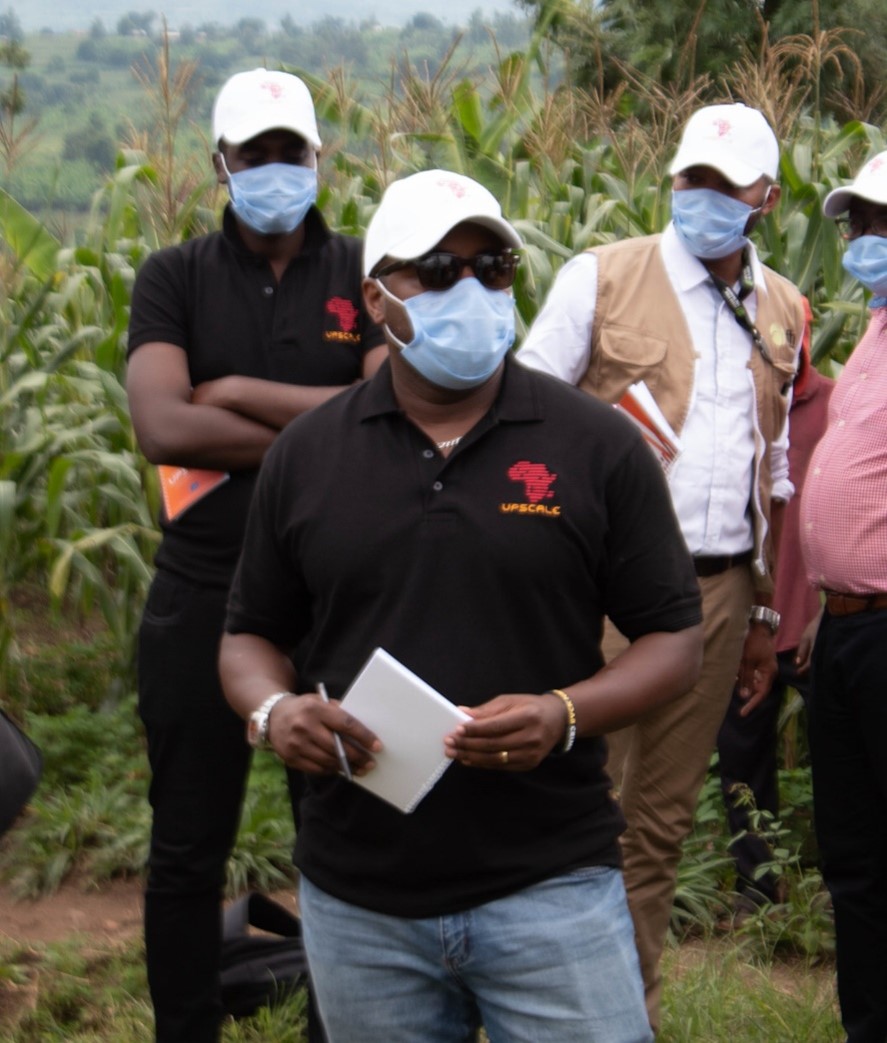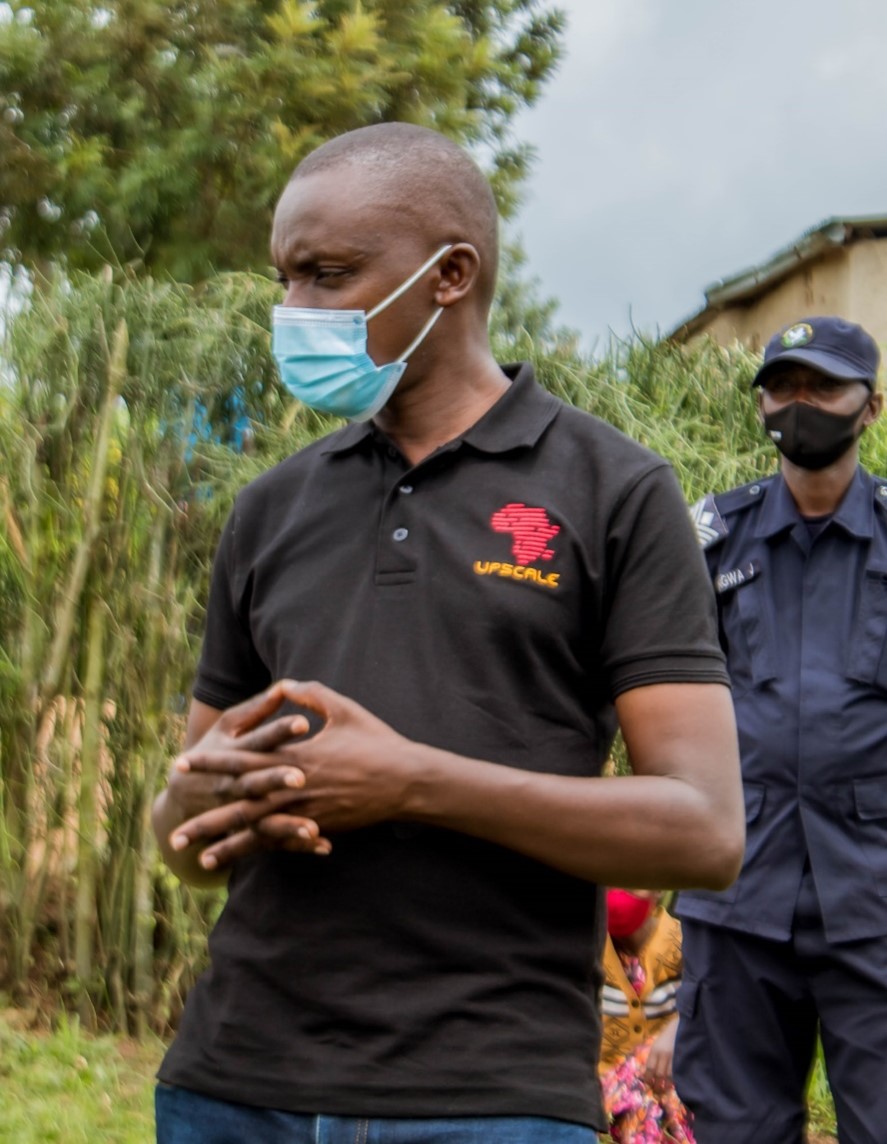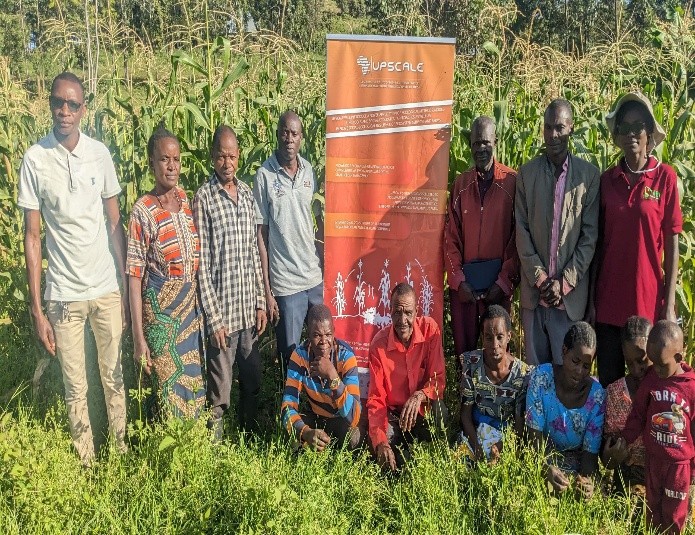Yet another UPSCALE Multi-Stakeholder Community (MAC) meeting is closed! This time, UPSCALE partners Food for the Hungry (FH) – Association Rwanda and Rwanda Agriculture and Animal Resources Development Board (RAB) bring impressions from the field. The event took place in Kigali, Rwanda, on the 5th and 6th of May 2021 gathering a group of not only farmers but representatives of the scientific community, civil society, policy makers, banking and insurance experts as well as local leaders whose impact is greatly appreciated in spreading the word about UPSCALE and engaging more farmers in the implementation of the push-pull technology. This included the executive Secretary of Nyagihanga Sector (Gatsibo District), Mr. Erneste the Director of Agriculture and animal resources in (Gatsibo District) Mr. Octave Nshimiyimana from the Ministry of Agriculture and Animal Resources, and Mr. Olivier from the Consumer rights protection organization (ADECOR), among others.
Just like the other first national MAC meetings, the one in Rwanda shared the same main goal – the formation of the MAC management team, establishing the MAC terms of reference and a schedule of activities as well as to make the field visit of push-pull plots to assess the contribution of this technology to the production. As a clear indicator of the success that push-pull has and the potential it carries for the farmers considering joining, UPSCALE presents testimonials of those farmers already implementing the push-pull technology.
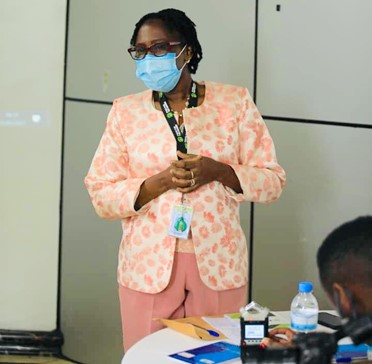 Mrs. Alice KAMAU-Country Director FH Rwanda during MAC Meeting
Mrs. Alice KAMAU-Country Director FH Rwanda during MAC MeetingNkima Germain (Researcher from RAB) has explained the process behind the technology, why Desmodium and Brachiaria are more efficient and how the chemicals which are used to kill army worm or other pests within the crops kill also other insects – which are called inshuti z’abahinzi (literally meaning “The friends of farmers”). They are useful in increasing the harvest for example bees.
He adds: “Apparently research is underway in regard to find traditional methods which will be used in fighting crop pests, at the same time protecting environment, Push and Pull being among them. Push-pull as uses two grasses, as already indicated, to push away the insect and to pull the insect from the maize field. The livestock we used to be fed with the Napier grass, but the current species of Napier grass commonly used in Rwanda has been gradually deteriorated over the past few decades due to various diseases and does not produce to the optimum. Brachiaria used in the PPT is in the same group and contrary to the current species available in Rwanda, this grass provides enough production for the livestock. In addition, this species is resistant to drought which is often the main challenge in this area. Food for the Hungry in collaboration with RAB and other partners are conducting research to have enough evidence which will form the basis to expand this technology in the whole country”.
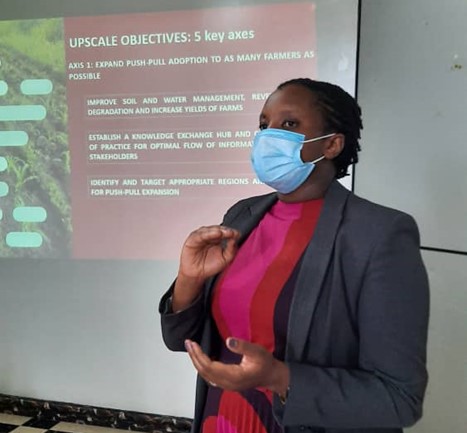
Gloria Mutoni, from FH, has clearly outlined both the benefits and current challenges that for further uptake of the PPT.
“PPT is traditional, with an ability to fight pests (army worm), without negatively impacting environment. The testimonies we have been getting from farmers indicate that the grasses used are good for livestock because they have proved to increase the milk of cows fed on it. The main challenge now is to increase the adoption of this technology to as many farmers as possible and to make other stakeholders support its adoption in different ways. As with any new technology, it is not easy to convince people without enough evidence, so in UPSCALE we are trying to produce as many as possible through research with our 18 partners across the world which will form the basis for adoption and expansion. Another challenge we are having is to produce enough seeds or seedling of brachiaria and desmodium, which haven’t yet become sufficiently available, in order to enable the farmers to have enough supply of them.”
What are the next steps?
During the next 5 years, it is the aim of UPSCALE, FH, and RAB team to have enough information and evidence which help make effective advocacy interventions to decision-makers in Rwanda, as well as towards other involved actors – to support the adoption and expansion of the push-pull technologies. This event was the first step in forming a management team for the multi-actor communities for practices that will support the project to plan and implement advocacy events. Therefore, the newly formed MAC management team will meet again in June 2021 to set a programme of future activities to facilitate the effective implementation of the project, including a baseline survey in the selected location to produce benchmark data on which the project will be evaluated.


